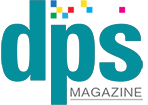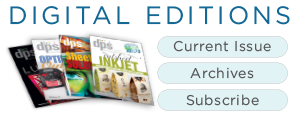By Melissa Donovan
Folding carton converters across the country search for ways to stand out from the competition while adapting to current marketing demands like shorter runs and multiple versions. Personalization drilled down by region, store, or buyer is hot and digital is designed to cater to this trend. Print providers adapting digital print solutions are ahead of the curve, offering clients quick turnaround and quality folding carton products.
From Photos to Folding
Cleveland, OH-based Tap Packaging Solutions started in 1906 when August A. Chilcote founded the Chilcote Company to sell photographic products. In 1920, Chilcote built a location on Cleveland’s Superior Avenue and began manufacturing photo mounts. The company still operates on that same block out of an 181,000 square foot space with 128 employees.
Over the last 50 years it acquired other businesses to expand its service offerings, which include paperboard packaging manufacturing, folding cartons, rigid set-up boxes, design and engineering, digital printing, offset printing, lamination, die cutting, embossing, hot foil stamping, assembly, case wrapping, warehousing, and inventory.
The company’s legacy business is photographic presentation packaging. Digital changed the landscape of that market and demand declined as consumers stopped purchasing packaged photos. While Tap Packaging Solutions still sells to over 10,000 photographers a year, it required another segment to remain relevant. The company decided to leverage its core capability—designing and manufacturing premium packaging—and market itself as a manufacturer of folding cartons and rigid setup boxes.
Designed for Digital
In 2010, the company rebranded as Tap Packaging Solutions—completing the consolidation of five market brands and three operating facilities. That same year, the business began looking closely at digital printing technologies—investing in equipment specifically for folding carton production. “Once the quality, sheet size, and substrate variability met the expectations of our capabilities and also the expectations of our folding carton customers, we knew the timing was right,” explains Jordana Revella, VP, sales and marketing, Tap Packaging Solutions.
Tap Packaging Solutions became interested in digital print when its customers continually began requesting small run sizes and more SKUs. What Revella refers to as SKU Proliferation—managing more SKUs at small quantities—was becoming a trend, along with personalization.
“Variable printing with a digital press allows our clients to leverage powerful marketing tools, like segmentation and target marketing, so these companies meet consumer demands. Our clients now speak directly to the specific consumer they are trying to access, and make their way into their hearts,” says Revella.
Fast forward to October 2014, when the packaging manufacturer purchased the floor model of the HP, Inc. HP Indigo 30000 at the Graph Expo trade show. The acquisition made it one of the first folding carton converters to invest in the printer. With the digital press specifically designed for folding cartons, 100 percent of the printing completed on it at Tap Packaging Solutions is folding cartons—from ten to 24 pt. board. All of the company’s short-run projects are run on the printer, including two of its stock lines of packaging products.
The HP Indigo 30000 was chosen because of its speed and efficiency. “We can instantly adapt when our clients are in a bind and need a quick turnaround. We have their backs when they need a short run. For example, if one of our clients launches a new product and they are still in the test marketing phase, and they don’t want to waste time, money, and materials on printing huge quantities of packaging on the traditional offset press, we can print a short run for them on the digital press,” shares Revella.
Now that it’s up and running on the shop floor, specific features are cited as game changing for the company. According to Revella the fast make ready requires zero printing plates and minimal waste compared to traditional lithographic printing. Any off-the-shelf substrates are used because of an inline priming unit. The Tresu coating unit allows for cartons to be UV or aqueous coated inline.
Thanks to its digital acquisitions, more than half of the consumer goods packaging converted at Tap Packaging Solutions is folding cartons. This work is done for premium brands representing health and beauty, specialty food, confectionery, luxury, and household consumer products.
Craft Chocolate
A recent project was for Chocolate Chocolate Chocolate Company, a family-owned candy business based in St. Louis, MO. The confectioner launched a new chocolate bar line with a hand-crafted theme. Ten versions make up the collection and the company requested 5,000 folding cartons per SKU.
“We take pride in making a premium product, but packaging is what the customer will interpret first. So we need to make that hook and get the customer to pick our bars up. If they pick up the product, there’s a greater chance of them taking it with them than putting it back down. The first pillar of our packaging is the structure and quality, photography is the second pillar, and design is the third. We really focus on those three aspects as a combined effort,” explains Dan Abel Jr., Chocolate Chocolate Chocolate.
In December 2015, Abel Jr. began brainstorming ideas for the craft chocolate bar line. He reached out to Tap Packaging Solutions and received a sample of what the final packaging would look like. When the budget and quality met Abel Jr.’s expectations, production began.
Design-wise, the confectionary company wanted to maintain the feel of a craft branding strategy. The boxes are numbered and feature a matte finish. Abstract photography and color are a prominent theme. “We believe that people associate their favorite flavors with color. Their favorite becomes the peanut butter banana flavor, for example, but as they come back to buy more, they go directly for the yellow box—because they just know it by yellow,” says Abel Jr. Once artwork was approved, the job took two weeks to complete.
WestRock Company’s SBS C1S Tango 92 Bright media was used. It is a bright white paperboard sheet. 50,000 total pieces were printed on the HP Indigo 30000 using Esko prepress software.
Chocolate Chocolate Chocolate was impressed with the quick turnaround and the HP Indigo 30000’s ability to color match to critical Pantone colors. The project made them a “believer in the quality of digital,” according to Revella.
A Successful Transition
Tap Packaging Solutions is poised to benefit from its early implementation of digital technologies. Recognizing at the onset the need to reposition itself in a shrinking market, the company adapted by transitioning its skills as a packaging designer and manufacturer into a folding carton converter. The change allowed it to work with clients like Chocolate Chocolate Chocolate, creating unique packaging in short runs and multiple SKUs.
May2017, DPS Magazine




